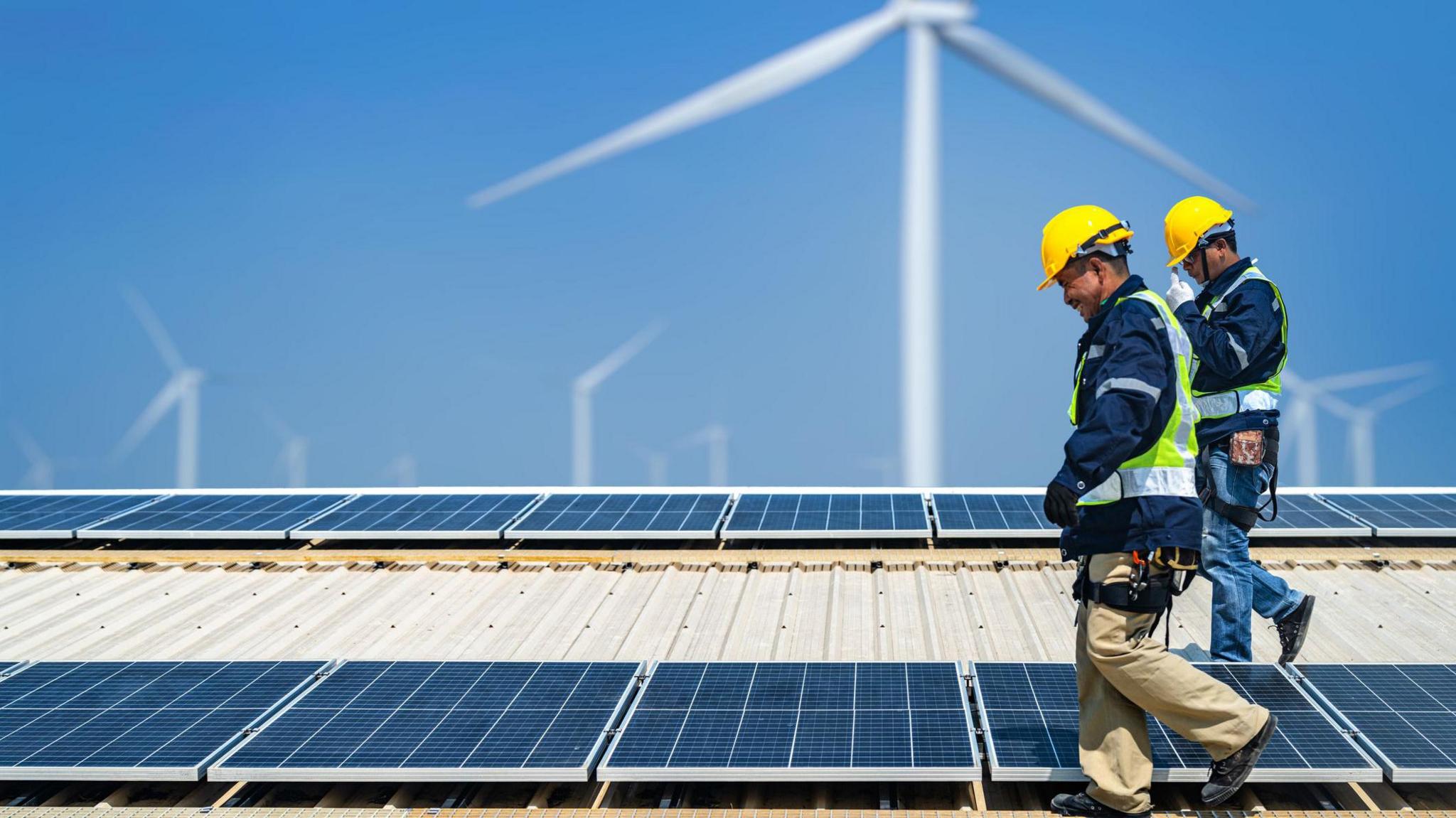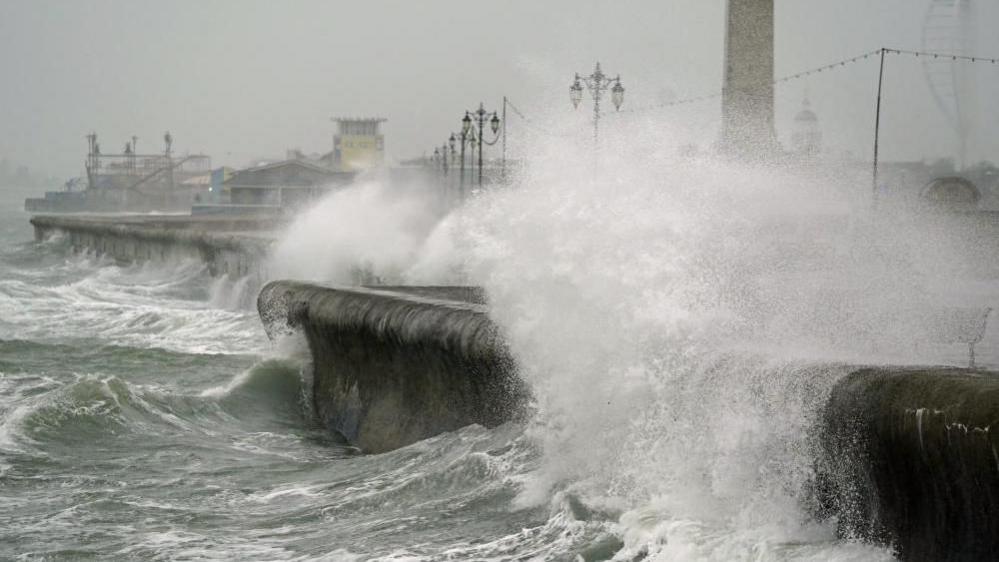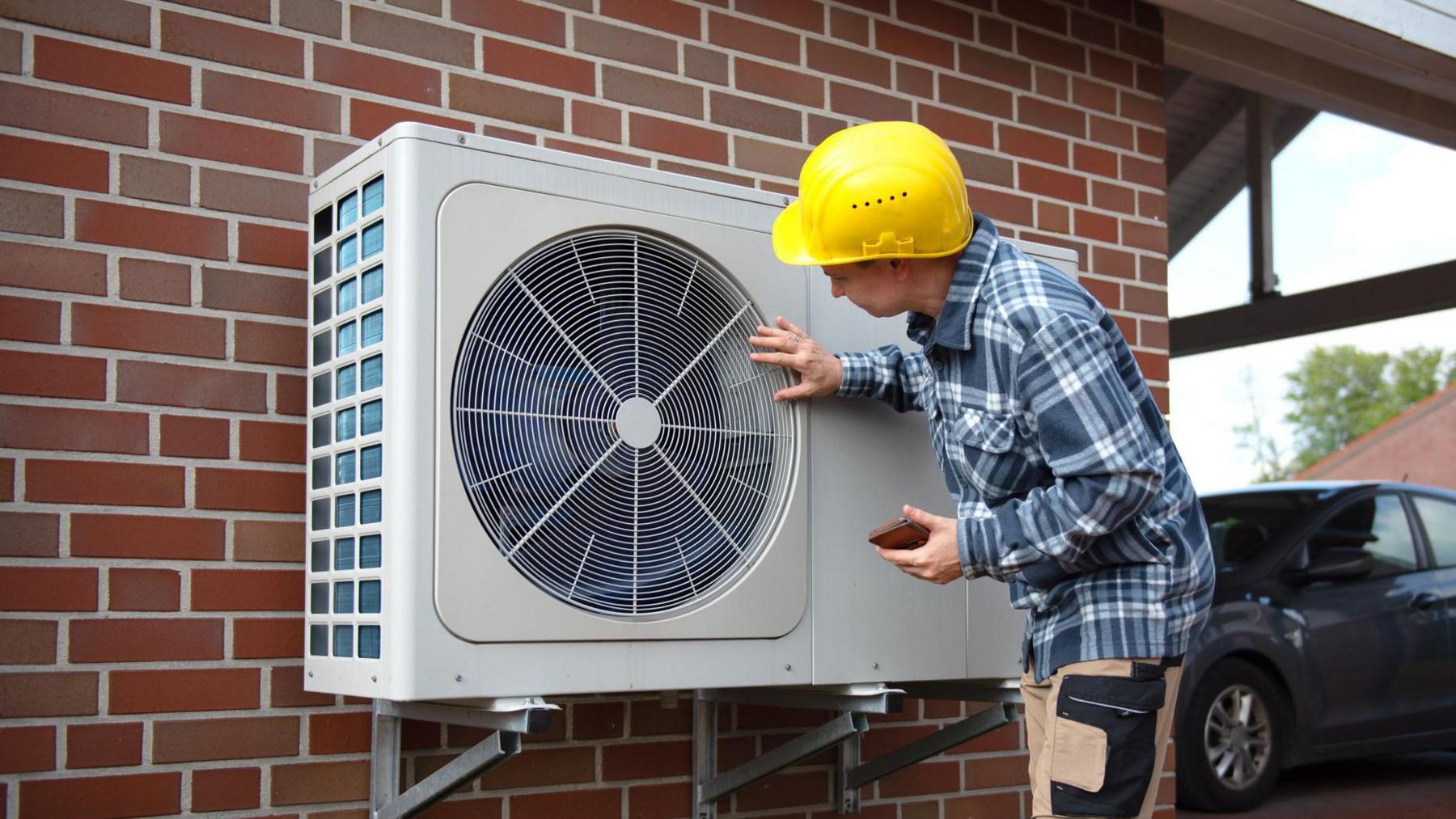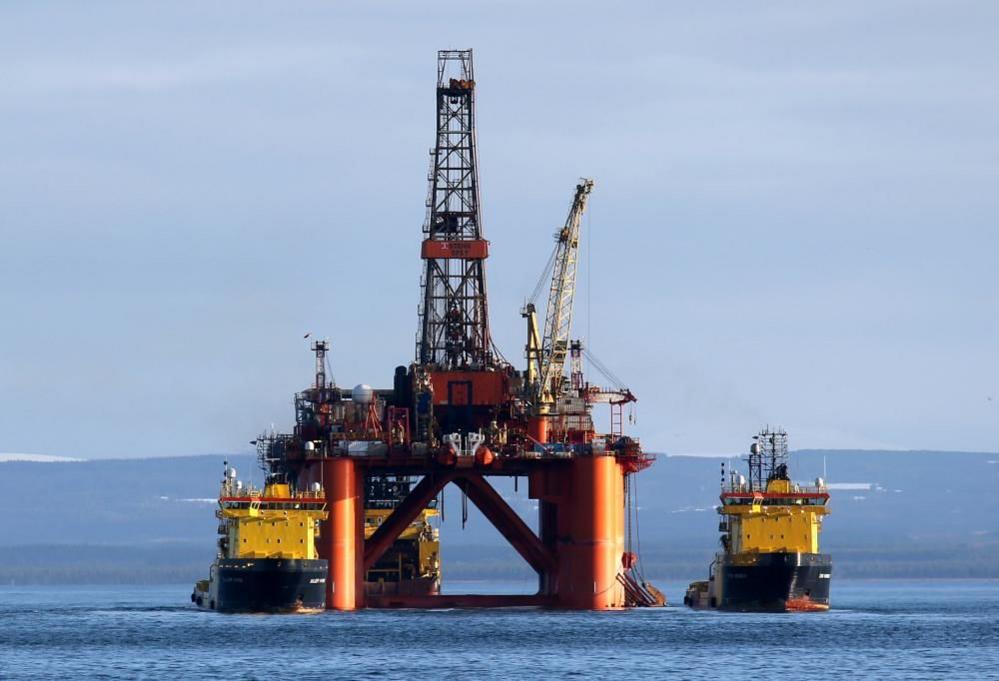What is net zero and is the UK on track to achieve it?

- Published
Achieving "net zero" is the world's key strategy to fight climate change, which is already having serious consequences for people and nature around the globe.
But the political consensus around the UK's net zero policies has collapsed, with opponents now branding them too difficult and expensive.
What does 'net zero' mean?
Net zero means balancing the amount of planet-warming "greenhouse" gases produced by human activities with the amount being actively removed from the atmosphere.
Effectively this means no longer adding to the total amount of these gases in the atmosphere to limit climate change.
Greenhouse gases include carbon dioxide (CO2) and methane. Their levels in the atmosphere are increasing rapidly due to human activities, including the burning of fossil fuels, chopping down of forests and farming.
In practice, reducing these emissions means largely switching away from coal, oil and gas to cleaner energy sources like wind and solar power.
It also involves adopting green technologies like electric vehicles and heat pumps in place of petrol or diesel cars and gas boilers.
But not all emissions – for example in agriculture and aviation - can be eliminated.
So remaining emissions need to be matched by things like planting extra trees, restoring peatlands or using machines to take CO2 directly out of the air.
But there are limits to these "carbon removal" techniques in scale and cost. That is why most of the focus is on drastically reducing emissions in the first place.
Why are net zero targets needed?
The world is warming because of humanity's greenhouse gas emissions, which increase global temperatures by trapping extra energy in the atmosphere near the Earth's surface.
This is bringing more frequent and intense heatwaves, rapidly rising sea levels and widespread harm to nature.

Sea-level rise increases the chances of coastal flooding during storms
Further emissions will continue to warm the planet.
"Limiting human-caused global warming requires net zero CO2 emissions," confirms the UN's Intergovernmental Panel on Climate Change, a group of leading scientists whose reports are signed off by governments around the world.
In the landmark 2015 Paris climate agreement, nearly 200 countries committed to reaching net zero globally in the second half of this century.
It's widely accepted that richer nations will need to get to net zero before poorer ones, which have often fewer resources to switch to cleaner technologies and have contributed less to climate change historically.
A really simple guide to climate change
- Published29 October
What is the Paris agreement and why does 1.5C matter?
- Published4 November
What is COP30 and why is it important?
- Published5 days ago
What is the UK doing to reach net zero?
The UK's greenhouse gas emissions have fallen sharply: in 2024 they were 54% lower than in 1990, according to provisional data.
This figure only includes emissions generated within the UK - in line with UN reporting standards - and not emissions from products manufactured abroad and imported.
Successive UK governments have pledged to reach net zero by 2050 and the target was written into law in 2019.
To help achieve this, the current Labour government has committed to:
so-called 'clean' electricity by 2030, by rapidly increasing wind and solar generation
end the sale of new fully petrol and diesel cars by 2030
subsidise electric heat pumps to replace gas boilers
invest in technology to capture and store CO2
However, in June 2025, the government's independent adviser, the Climate Change Committee (CCC), warned that further action was needed.

Heat pump installations are rising but remain below targets
Where do UK parties stand on net zero?
When former Conservative Prime Minister Theresa May signed the UK's 2050 net zero target into law in 2019, it passed through parliament with the support of all the major parties.
But that political consensus has since fragmented. The term "net zero" is often used by critics to attack environmental targets, which they claim are being put ahead of economic goals.
The Labour government is still committed to the 2050 goal, a policy also supported by the Liberal Democrats.
Both parties want the the UK to take the lead on fighting climate change, which they rate as one of the greatest challenges facing the country.
And they argue that it's in the UK's economic interest to wean itself off fossil fuels, which can be volatile in price. Gas and oil supplies can also be interrupted by international events such as Russia's invasion of Ukraine.
But the Conservatives and Reform UK want to scrap the UK's net zero target.
These two parties say that current plans are too costly and unachievable.
They argue that, in isolation, the UK's efforts make little difference to climate change, not least because UK emissions are much smaller than those of countries like China and the US.
By contrast, the Green Party wants net zero "as soon as possible, and more than a decade ahead of 2050", because of "the urgency of the climate crisis".
The SNP has targeted net zero by 2045 for Scotland. Plaid Cymru wants to accelerate the transition to net zero in Wales, but has not committed to a specific date.
What will net zero cost the UK?
There is no single path to net zero either for the world as a whole or for an individual country; different policies and technologies bring different costs and benefits.
That means there is no fixed price.
But, for the UK, the Climate Change Committee estimates a net cost equivalent of about 0.2% of the country's GDP per year between 2025 and 2050, based on its suggested path.
This would require tens of billions of pounds a year in upfront investment by the end of the 2020s. Most of this is expected to come from the private sector, not direct government spending, the CCC says.
It calculates that the savings from moving away from fossil fuels to cleaner, more efficient technologies should outweigh costs by the early 2040s.
Multiple studies have found that, globally, the economic cost of tackling climate change is much smaller than letting warming continue unchecked, which would result in widespread and increasing climate hazards.
However, as with any transition, the costs and benefits can be unequally felt. For example, while there is huge potential for new clean energy jobs, those employed in the oil and gas industry are likely to be negatively affected.

The UK government has pledged to not issue any new oil and gas licences in the North Sea
What have other countries promised?
China - which was the biggest producer of CO2 worldwide in 2024 - is aiming for "carbon neutrality" by 2060. Its plans to cut emissions are not fully developed, but its electric vehicle sales and renewable energy sector have been growing rapidly.
The US is the second biggest emitter of greenhouse gases - and still produces more CO2 than China per head of population.
It had pledged to reach net zero by 2050, but President Donald Trump has effectively scrapped that commitment and is rolling back clean energy initiatives.
The EU has a 2050 net zero target and has made sizeable cuts to emissions. Germany, its largest economy, is aiming for 2045.
Russia and India are also big emitters. They have pledged to reach net zero by 2060 and 2070 respectively.
Overall, about 140 countries have net zero targets, external. That covers roughly three-quarters of global emissions and 80% of the world's population.

Sign up for our Future Earth newsletter to keep up with the latest climate and environment stories with the BBC's Justin Rowlatt. Outside the UK? Sign up to our international newsletter here.